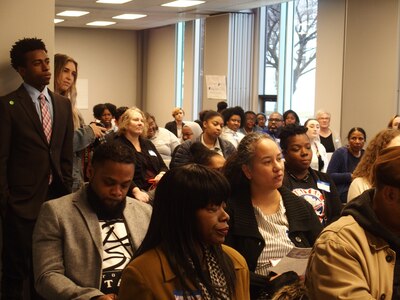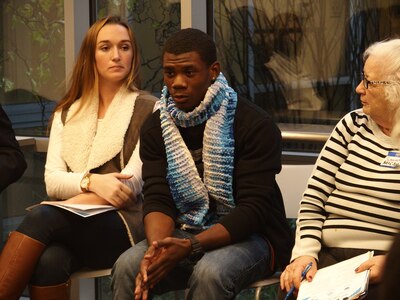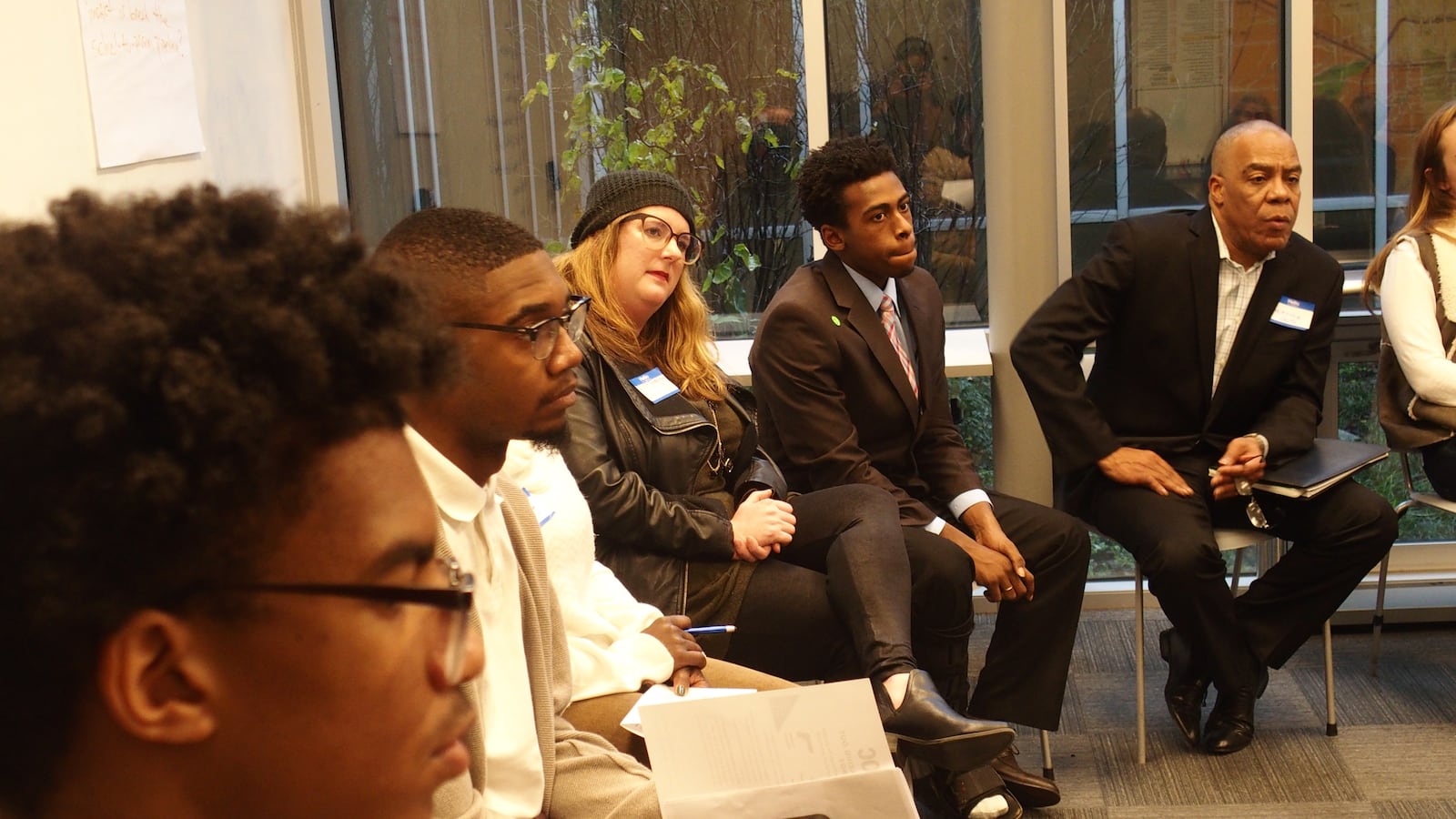To demonstrate how prevalent kicking students out of school for behavior problems is in Memphis schools, senior John Chatman had a question for a room of about 100 students and community members over the weekend.
“Anybody know anybody that’s been suspended or expelled?”
Nearly all hands went up. Chatman, who attends alternative school G.W. Carver College and Career Academy, said he was one of them and by his memory had racked up nearly 50 suspensions throughout elementary school.
“That put a label on me as a troublemaker and continued with me to middle school and continued to get worse and the scrutiny continued to get worse from the school administration, which led to me being over-sentenced and later on being detained,” he said.
Chatman was representing Brothers and Sisters Speaking Out for Change, a group of student leaders who have been in juvenile detention and trained through BRIDGES, a student youth advocacy organization in Memphis. Chatman along with students Jordan Nolan, Terrion Anderson, and Patrick Johnson, have worked on crafting policy recommendations based on their experiences in Shelby County Schools, juvenile detention, and living in poverty in Tennessee’s largest city.

Shelby County Schools has reduced the number of out-of-school suspensions in recent years. But as suspensions have decreased, expulsions have increased. Research shows that students who are kicked out of school are more likely to have lower test scores, drop out of school, or become involved in crime than other students.
The students recommended:
- Free MATA bus passes for all students to help them get to and from school on time and also to jobs and after-school programs.
- Living wage for everyone — including workers who don’t have a high school diploma so that parents would not have to work multiple jobs and miss out on more time with their children.
- Morning check-in time in schools so that teachers can build “meaningful relationships and trust” with students. The student leaders said these kind of conversations, whether one-on-one or in groups, “could prevent violence and misunderstandings” between teachers and students.
- Talk-it-out time to discuss conflicts between teachers and students before a student is suspended or expelled because of misbehavior.
- More academic staff support in the classroom so students who are struggling are able to get extra support and instruction for “students who learn differently.”
Two of the recommendations, free city bus passes for students and living wages, would require cooperation from entities outside the district.

Though educators who work with students at alternative schools often give out their cell phone numbers to be available to students when they’re away from school, more is needed, said Tracy Gorea, an advisor for Project STAND, a program at Carver Academy for students have been detained in the juvenile court system.
“I know schools are an important part of children’s lives, but there’s only so much we can do,” Gorea said during an October meeting with the students who crafted the recommendations. “We need more reinforcement at home.”
Below is a video of Chatman’s presentation Saturday at BRIDGE’s Youth Action Networking Day, which some Shelby County Schools officials attended.

